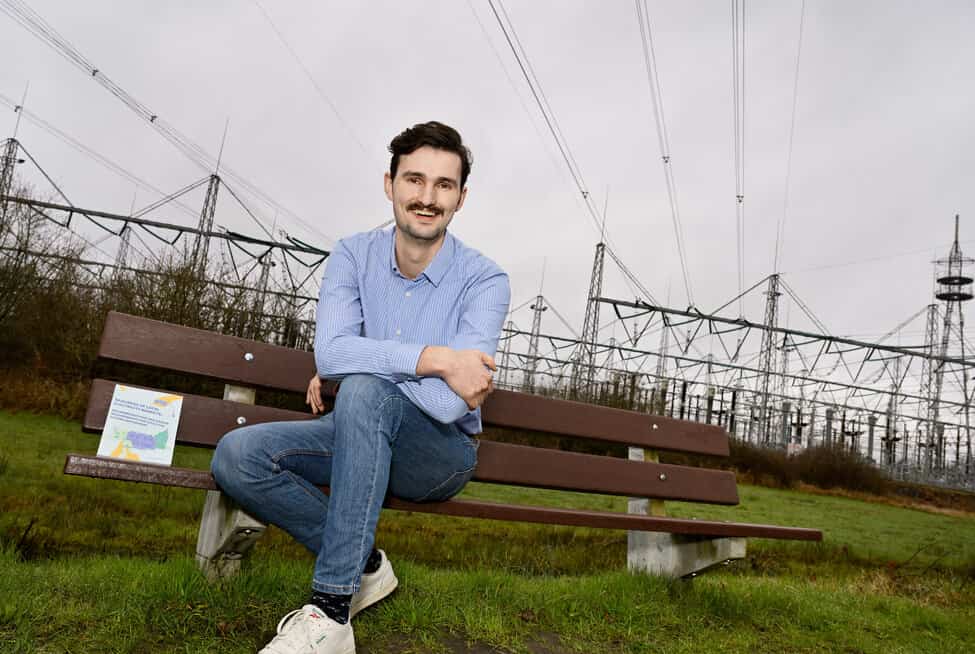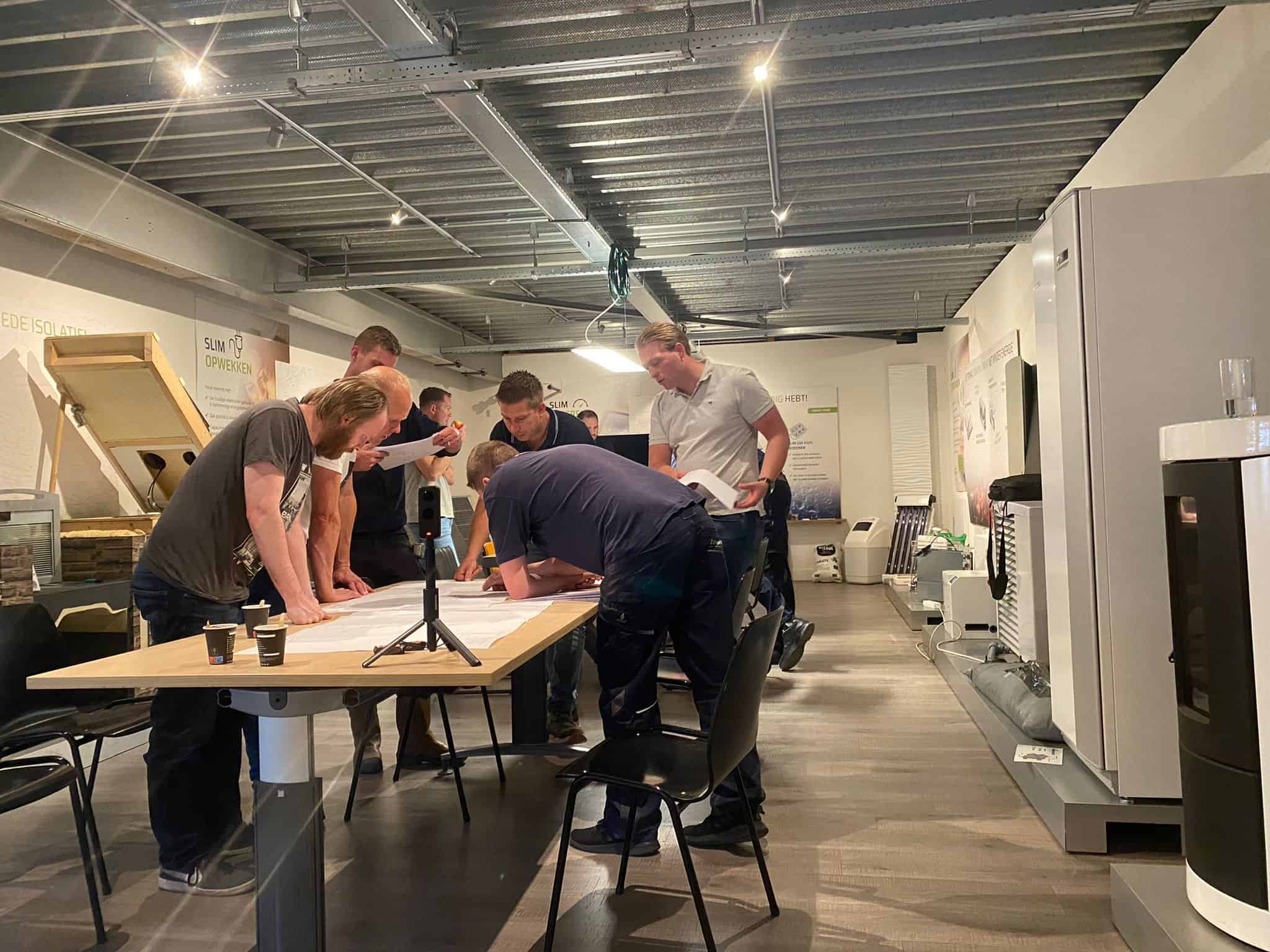
At the invitation of Brainport, Auke is offering two new members of the Dutch parliament an insight into his work. “Brainport is doing well. It’s like the Silicon Valley here. Come and have a look. They’d love to show that to the House of Representatives,” Auke briefly sums up the event. He himself has a slightly different message for the members of parliament. He wants to give policymakers tools that they can use to make important decisions in the energy transition.
“Not like an oracle who just tells politicians from the top of his ivory tower how to do things. No, I want to help policymakers in a way that gives them insight into the complexity of, for instance, energy systems,” he goes on to explain. To illustrate what Auke means, he immediately cites an example.
“Policymakers only gain this insight once they can actually see the knock-on effects of their policies. So if I put windmills here, then that happens there. You can use modern interactive dashboards to illustrate this very clearly. That also works much better than bulky reports full of graphs and tables,” says Auke. It is one of the reasons why he founded NEON Research. To bring science closer to politics and actual practice.
Science already has the answers
Because according to Auke, science does have the answers. It’s just that putting these into practice is ten to twenty years behind. This is what he figured out while he was graduating. “Because I was spending too much time on my studies, I needed money. I set up a company and chose a practical assignment that would earn me some income. It then hit me right away. I was putting something into practice that had been thought up twenty years ago. So I was left with questions: ‘That can’t be right? Why has this taken so long?'”
His university professor at the time just shrugged it off. ‘That’s just the way it is,’ was the response back then. It always stayed in the back of Auke’s mind until he decided to do something about it. “After a number of side-tracks into telecom, I wanted something different and took a sabbatical. At the time, I immersed myself in electric driving and the seed that had already been planted during my graduation days sprouted. ‘Wait a minute! Science already has all the answers!” Suddenly Auke becomes feisty and starts talking louder. “It can’t and shouldn’t be the case that you come across ideas in the literature that are twenty years ahead of actual practice. Not on my watch! I wanted to – and still do – bring science to the field faster. I want to bring science into actual practice.”
Science via politics into practice
Auke wants to translate the latest scientific insights, via politics, into daily practice. “They concern policy. But change is difficult and certain things are so embedded in the system. People are creatures of habit and don’t like to be told to do things differently. Take cultured meat for instance. Compared to regular meat, you need less land, fewer pigsties, without causing any animal suffering or all the accompanying emissions. Wouldn’t that be cool? But the Ministry of Agriculture can already see me coming. If I try to sell this idea, they’ll pile up sandbags in front of the door,” says Auke half-jokingly.
He understands this too. A ministry like this has to contend with angry farmers and other concerned parties. Members of parliament are more independent and are able to put these kinds of issues on the map more easily. “Members of parliament have relatively a lot of power and are much more independent than, for example, a minister in a ministry. It seems to me a huge challenge and honor to simplify research, which often involves years of work. So that House of Representatives can have something useful to say about it. This is how you can directly inform the system and exert a bit more pressure towards innovation.”
Translating deep and far-reaching thinking into the hustle and bustle of every day
In Auke’s view, this is still a major challenge. There is a big gap between practice and science. “In actual practice, people want a solution as soon as possible; there is much less time to think about a particular problem. Everything has to be done as quickly as possible.” While this is different in science he notes. Auke continues on in a slow voice: “Scientists often work on the same subject for years, ideas are well thought out and completely crystallized. Scientists think about problems for a very long time and very deeply.”
“In the hustle and bustle of the day, we are constantly dashing around, everything has to be happen fast. A solution must come now. That’s why it’s so difficult for members of parliament to learn a lot about the energy transition, for one thing, in a short period of time. They don’t have that much time to think in more depth about the issues and often have only a few minutes in debates to make their point. I want to translate the deep and far-reaching thinking of scientists into the hustle and bustle of the day.” With a grin: “The fact that I am able to work through a difficult issue thoroughly and make it understandable within a few days seems to be unique. I have already been warned by these members of parliament that I might well be busy in the near future.”








